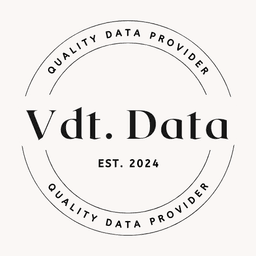Science Question and Answer
Data Science and Analytics
Tags and Keywords
Trusted By




"No reviews yet"
Free
About
This dataset consists of contextual data and associated question-answer pairs, designed for training and evaluating models in natural language processing (NLP), particularly in the areas of question-answering and information retrieval. It provides a rich set of challenges, including noisy data, ambiguity, and domain-specific content.
Dataset Features:
- Context: Descriptive paragraphs, spanning diverse domains such as social media analytics, machine learning methodologies, fair division problems, and video alignment algorithms.
- Question: Questions extracted from the context that challenge a model’s ability to understand, infer, and retrieve key information.
- Answer: Short, precise answers to the corresponding questions, drawn directly from the context or requiring interpretative reasoning.
- QA_ID: A unique identifier for each entry, which can be used to track or reference specific rows.
Usage:
This dataset is ideal for:
- Training and evaluating NLP models: Benchmarking algorithms for tasks such as information retrieval, question answering, and contextual inference.
- Feature analysis in text understanding: Identifying patterns in text comprehension and question-answer mapping.
- Data augmentation and pretraining: Enriching NLP datasets with diverse content and question-answer scenarios.
Coverage:
The dataset encompasses a variety of domains, including:
- Election and social media analysis
- Algorithmic advancements in AI and machine learning
- Mathematical frameworks for fairness and optimisation
- Video-to-language alignment
- Dimensionality reduction and robust PCA
- Heterogeneous information networks (HINs)
- Incomplete data querying and bag semantics
- This wide-ranging content makes it suitable for exploring domain-specific challenges and developing robust, generalisable models.
License:
CC0 (Public Domain)
Who Can Use It:
The dataset is tailored for:
- NLP researchers and practitioners.
- Machine learning enthusiasts focusing on domain-specific text tasks.
- Students exploring applications of information retrieval and QA systems.
How to Use It:
- Develop and benchmark NLP models in QA tasks.
- Investigate the relationship between context complexity and answer predictability.
- Conduct a comparative analysis of algorithmic performance across domains.
- Train models to handle noisy, domain-specific, and multilingual data.
Loading...
